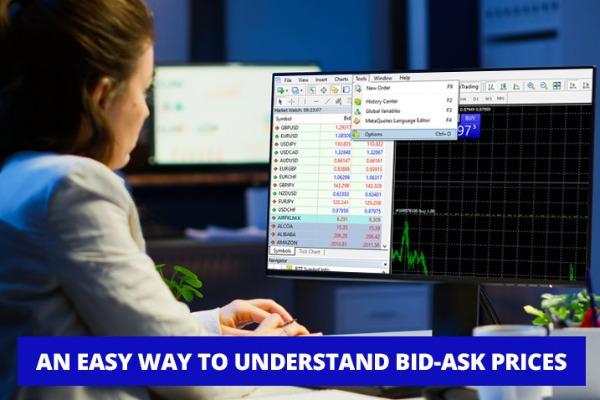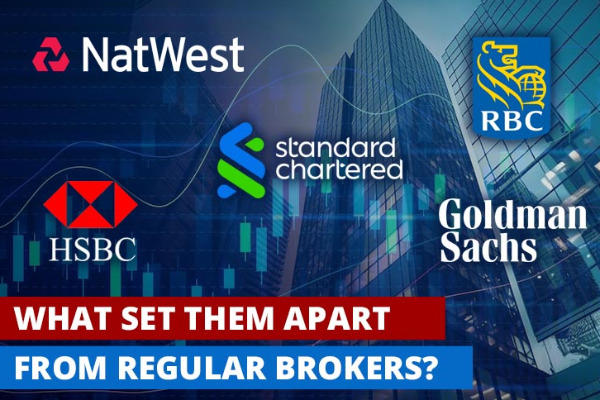In the world of trading, there are red flag traits from traders that you should avoid. Recognize the signs and learn from the following review.
A trader must understand what should be done and avoided in the trading world. However, some traders do not understand forex trading and do things that should be avoided. As a result, they fall into the pit of losses and have to lose a lot of money.
It is not uncommon for forex traders to lose money due to their behavior. To avoid suffering the same fate, you can anticipate it by avoiding these red flag traits around you. But what are these red flag traits like?

Red Flag Traits on Traders
According to an article by Dale Woods from The Forex Guy website, there are several true stories of red flag habits from traders who suffered huge losses due to their actions. Their mistakes should serve as lessons to avoid repeating them.
In addition to success stories, there is no harm in knowing the stories of failed traders as material for self-introspection. However, some trader names in this article will be disguised to protect their privacy, but the overall stories are true. Let's look at the following three stories of red flag traders.
Influenced by Greed
Greedy Trader is a businessman who built their own business from scratch. The business flourished, and Greedy Traders became wealthy. However, they still wanted to increase his wealth. That's when they discovered forex trading, which they believed could generate "Unlimited" profits.
Greedy Trader was confident that they could repeat his success through forex trading. They didn't think of anything else but the image of doubling their profits; after all, their business was already successful. Finally, they invested a large amount.
However, Greedy Trader was disappointed sometime later because their results did not meet expectations. Without hesitation, they multiplied his investment and used riskier methods.
As you might expect, all of their trading funds were lost because of the losses. However, instead of learning from mistakes, they became greedier and began selling business assets, borrowing money from the bank to increase capital. It didn't take long before all of Greedy Trader's wealth was gone. Eventually, Greedy Trader, who was once a successful businessman, was now bankrupt and had to pay off their debts.
What lessons can be learned from the story of Greedy Trader above?
Success in a particular profession or domain does not necessarily translate to success in the forex market. Whether you are a doctor, professor, engineer, or pilot, it's crucial to remember that profitable forex trading relies on effective emotional management and rational decision-making rather than mere persistence. Beginner traders, in particular, often make errors by trading impulsively on emotions, which should be avoided.
Besides maintaining a clear mindset, utilizing "cold money" as your trading capital is important, which means allocating funds solely for trading purposes. These funds should not be intended for other expenses like food, loan repayments, vehicle purchases, or children's tuition fees. It's advisable to refrain from trading until you have accumulated enough cold money as your capital.
See Also:
Always Flaunts Their Trades
This type of trader is famous in trading forums for appearing to be skilled, but he only shows off and acts like a professional with his constantly climbing theories. He loves his attention, which only makes his ego bigger. He decides to promote himself as the best signal provider. In the beginning, he gained a lot of followers thanks to the 18% profit he made in a month.
Long story short, his performance doesn't improve, and his followers become suspicious. However, he insists on maintaining his strategy to keep his popularity.The Flexer usually pose as a succesful scalper who likes to open multiple positions with small targets. They risked 20-50 pips for a 3-5 pip target before! They can't cover the spread and panic when suffering a big loss. They then try increasing his positions to improve his trading, even opening 30 orders simultaneously. His bankruptcy becomes more apparent.
Their flaws are eventually exposed to their followers. Their live follower accounts suffer losses, but not his own, because he only uses a demo account! The followers who had signed up to copy his signals were very angry.
As a result, The Flexer can no longer flaunt their 'greatness' and has been kicked out of any trading forums. He is no longer admired or respected.
Indulging in flaunting, overconfidence, and arrogance is a perilous affliction in the trading world. Genuine intelligence doesn't rely on discussing intricate theories that are beyond comprehension. Instead, a truly intelligent individual can explain complex concepts in simpler sentences to a broad audience.
To avoid becoming like the Flexer, refrain from excessive showboating and prioritizing popularity. Rather than being preoccupied with seeking attention, focus on strategies to sustain a steady income stream.
See Also:
FOMO Mentality
The story of the third red flag trait begins with the trader's strong desire to learn to trade. They wanted to learn all the difficult aspects of trading to become a successful trader quickly. However, they did not understand the importance of patience in forex trading. Just as they had learned about price action, FOMO Trader quickly used it in a real account without practicing first in a demo account. They devoured all the pin bar and candlestick formations.
Trapped in the pit of overtrading, FOMO Trader even considered it progress. They might even opened a personal blog about their trading activities.It didn't take long for their trading funds to be depleted. His account and blog were closed. They disappeared into the unknown, and never heard again.
The FOMO (Fear of Missing Out) mindset is just as hazardous as the act of flaunting. FOMO traders often exhibit aggressiveness, impatience, and excessive confidence, driven by their fear of falling behind others. This is exemplified by the story of the FOMO Trader, who hastily entered the real trading market without practicing on a demo account or gaining sufficient trading knowledge.
Gaining proficiency in forex trading requires time and patience, encompassing the mastery of theories, strategies, and trading methods. A comprehensive understanding and patience are essential throughout the learning process.
Conclusion
Those three trader stories mentioned earlier offer numerous valuable lessons. It's crucial to avoid repeating the same mistakes and patterns showcased in these stories. Keeping in mind the significance of steering clear of greed, arrogance, and impulsiveness in forex trading is imperative. If you ever find yourself imitating these red flag habits, make a conscious effort to self-improve and be mindful.
To avoid these red-flag habits, traders can learn from professionals. For example, Joe DiNapoli has some good advice to make sure traders know what to do.

 Dedicated FREE FOREX VPS
Dedicated FREE FOREX VPS Free FOREX Virtual Private Server
Free FOREX Virtual Private Server MT4 Demo Contest, Get $500
MT4 Demo Contest, Get $500 Sign Up for an Account, Claim 60% Deposit Bonus
Sign Up for an Account, Claim 60% Deposit Bonus Free MT4/MT5 VPS 2024
Free MT4/MT5 VPS 2024 Send E-mail and Get Free Merchandise
Send E-mail and Get Free Merchandise $1K Refer a Friend Bonus for Pepperstone Pro clients
$1K Refer a Friend Bonus for Pepperstone Pro clients Maximize Your Earnings with 100% Deposit bonus
Maximize Your Earnings with 100% Deposit bonus Trade to Win, $5,000 Monthly Demo Contest
Trade to Win, $5,000 Monthly Demo Contest Claim 30% + 15% Deposit Bonus from LiteFinance
Claim 30% + 15% Deposit Bonus from LiteFinance











